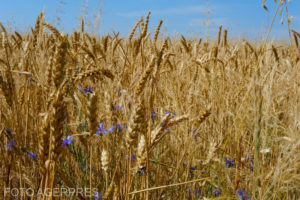The problems on the European market, triggered by the import of cheap grain from Ukraine, were debated on Wednesday in the European Parliament’s plenary.
Since the Russian invasion of Ukraine, some 17 million tons of farm products left the letter country by road, rail or water, according to the Agriculture Ministry in Kyiv.
Of them, the entire quantity of cereals, accounting for around 38% of the Ukrainian exports, reached the EU countries neighboring Ukraine, after Ukraine’s border with Russia and Belarus had been closed down. In order to help Ukraine, after Russia had blocked Ukrainian ports at the Black Sea, the EU suspended customs duties and other commercial protection measures applied to imports of Ukrainian grain and other food products, without imposing the observance of European quality standards.
What the EU wanted was to give Ukrainian farmers the chance to export their cereals and oilseeds to their traditional markets in Africa, the Middle East and Asia, and thus help ease the global food crisis. However, a large quantity of cereals remained in Eastern Europe and created difficulties there. At Wednesday’s debates in the European Parliament’s plenary, on the problems created to the European market by the big inflow of cheap Ukrainian grain, MEPs asked for additional measures to protect the highly affected farmers in East Europe.
The five countries in question – Romania, Poland, Bulgaria, Slovakia and Hungary – have experienced an emergency situation which required European solidarity for their protection, EU Commissioner for Agriculture, Janusz Wojciechowski said, acknowledging Bucharest’s contribution to ensuring solidarity corridors for the Ukrainian grains. The European official thanked Romania, which, in his opinion, bore the heaviest burden, after 9 million tons of grain entered the country, and 2.5 remained there.
The EU now says that Ukrainian cereals will only transit these countries, and is trying to monitor transports, so as to prevent them from remaining in the transit countries and disturb their markets. Romanian MEP Dacian Ciolos, a former European Commissioner for Agriculture, called on the Commission to do more to make sure the Ukrainian cereals reach third countries. Also, the Romanian MEP Daniel Buda, Vice-Chair of the Committee on Agriculture, also insisted that the grain is handled directly by the European Commission, while MEP Carmen Avram asked for the extension of the import ban in the affected countries. She said Romania is in a special situation, with road, rail and maritime connections with Ukraine, and that the Romanian Black Sea port of Constanta is overwhelmed. (Corina Cristea, Radio Romania International)











